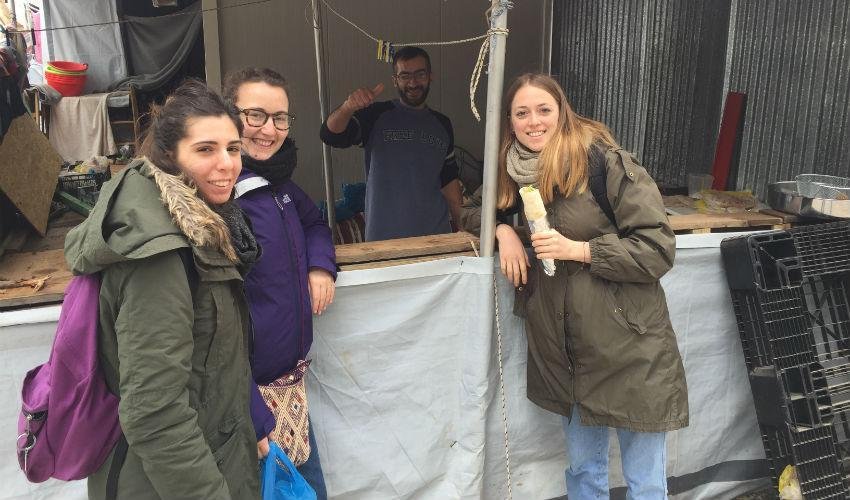Study conducted in a Refugee Camp by three LEAP affiliated students

A
suspended world, hundreds of blocked lives, an unforgivable waste of human
capital. This is the refugee camp of Ritsona, Greece, as seen by Giulia
Buccione, Viola Corradini and Beatrice Montano, three recent graduates in Economic and Social
Sciences,
who visited the camp in March 2017 and May 2018 for a research project of LEAP, the Bocconi
Laboratory for Effective Anti-poverty Policies.
A Milanese architect specialized in emergency
structures, Bonaventura Visconti di
Modrone, asked LEAP for an impact evaluation of the introduction of a public space, a tent for social activities, in the refugee camp that
houses between 500 and 900 people, mostly Syrians.
The three students soon realized the lack of
scholarly literature on the subject and decided to visit the camp. The first
stay, in March 2017, allowed them to familiarize with the reality of life in a
refugee camp, «a low control prison, a place full of people stationed in a
limbo for years», says Viola.
Ritsona is considered one of the safest camps in
Greece and guests can come and go as they please, although the nearest village
is a couple of hours away and the authorities ensure only one transfer a week
to and from Athens and Chalkida. «We immediately observed the existence of an
embryonic market economy, with many small activities, such as barbers, food
retailers and so on, managed by the refugees themselves», Giulia recalls. «They
also have to solve the problem of food supply with the €90 per month that the
UNHCR provides to each head of household and €50 for each other member». The
three girls then decided to use a questionnaire to investigate the economic and
social choices of the refugees. In May 2018 they returned to Ritsona and
collected the data that depict the situation before the installation of the new
tent. Other students will collect the same data after the installation of the
tent (which has been built right in these days).
Entire villages have moved from war-torn Syria
and the refugee camps present a variegated microcosm (from the graduate to the
farmer), which reproduces the problems and contradictions of the motherland,
starting from the lack of integration between Syrians of Arab and Kurdish
ethnicity.
«When you arrive in Ritsona you are impressed by
small economic activities, which seem to indicate a strong dynamism», explains
Beatrice, «but you immediately realize that they are undertaken by a small minority
of young males. When you start to wander around the containers you discover a
reality made of lack of social ties, especially for women who rarely come out
of their containers, distrust, apathy, boredom, up to depression and episodes
of severe psychological discomfort among young people.
«A first conclusion we came to», say the three
girls, «is the lack of mutual information. Just as we had no idea of life in a
refugee camp, they have no idea of what it is realistic to expect in Europe.
They choose one country rather than another on the basis of a postcard or
little more and expect salaries that a manager can earn».
The three students have reached the deepest
awareness of what it means to live in a refugee camp not so much through the answers
to the questionnaire, but through meetings with youngsters of their age, who
helped them in their research and with whom they could identify.
Giulia, Viola and Beatrice are LEAP’s affiliated
students.
The program, started in 2016, provides for regular meetings between students
and professors who study development economics at Bocconi and for collaboration
in research activities. From next summer, Beatrice will be a researcher at the
London School of Economics, with Giulia and Viola leaving for a doctorate
abroad.
Read the full article at Sarfatti25 at these links:
You can also read this story here:
IoDonna (Italian only)
Redattore Sociale (Italian only)